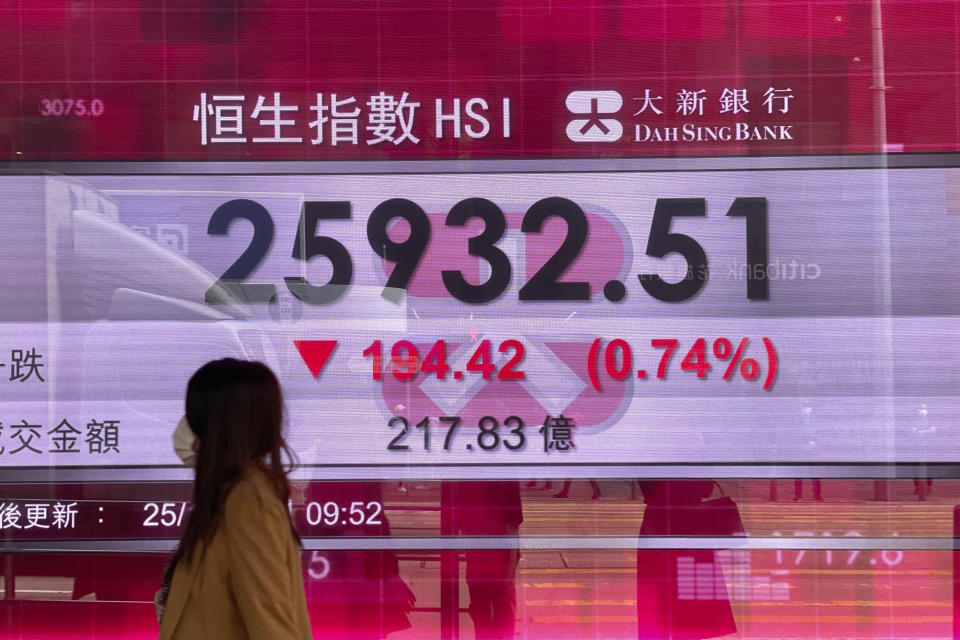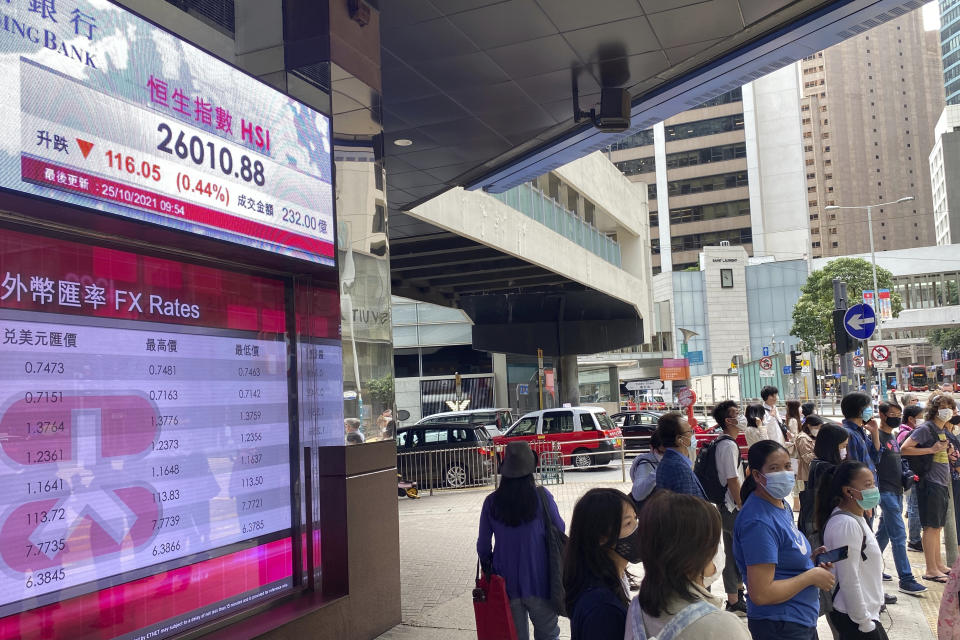Asia stocks mixed after Wall St slips, China travel curbs
BEIJING (AP) — Asian stock markets were mixed Monday after Wall Street slipped and China tightened travel controls in some areas in response to coronavirus infections.
Shanghai, Hong Kong and Sydney advanced while Tokyo declined.
Wall Street’s S&P 500 index declined 0.1% on Friday, weighed down by losses for tech companies after a seven-day streak of gains.
In China, Gansu province in the northwest closed tourist sites Monday after coronavirus cases were found and the capital, Beijing, banned visitors from areas with infections in the past 14 days. China has reported only a few dozen cases, but Beijing’s response of curbing travel prompted concern that they might weigh on economic activity that already is weakening.
“One may expect aggressive measures to control virus spreads, which may put a cap on growth,” said Yeap Jun Rong of IG in a report.
The Shanghai Composite Index rose 0.3% to 3,594.32 while the Nikkei 225 in Tokyo lost 1% to 28,520.35. The Hang Seng in Hong Kong added 0.1% to 26,157.11.
The Kospi in Seoul advanced 0.2% to 3,013.13 and Sydney’s S&P-ASX 200 gained 0.4% to 7,444.00.
New Zealand, Singapore and Jakarta declined.
On Wall Street, the S&P 500 ended at 4,544.90 on Friday after losses for big tech companies after a day of choppy trading.
The Dow Jones Industrial Average gained 0.2% to 35,677.02, exceeding its Aug. 15 high. The Nasdaq composite slid 0.8% to 15,090.20.
Some 65% of stocks in the S&P 500 closed higher, led mainly by financial and health care companies, but losses in communication and technology companies held the S&P 500 down. Chipmaker Intel slumped 11.7% after reporting disappointing revenue.
Snapchat’s parent company, Snap, plunged 26.6% after reporting weak revenue and disclosing that its ad sales are being hurt by a privacy crackdown that rolled out on Apple’s iPhones earlier this year. Facebook fell 5.1% and Twitter lost 4.8%. Google’s parent, Alphabet, declined 3%.
The three major indexes post their third weekly gain after investors were encouraged by mostly solid corporate results.
Also Friday, Federal Reserve Chair Jerome Powell said industrial supply chain problems have gotten worse and will likely keep inflation elevated well into next year.
Investors are looking for clues as to how companies are navigating supply chain problems and rising costs for materials, transportation and other goods and services. Many companies have warned higher costs will hurt operations.
Powell also said the Fed isn’t prepared to lift its benchmark interest rate from near zero. But he suggested the economy might be ready fo ra rate hike next year.
In energy markets, benchmark U.S. crude rose 95 cents to $84.71 per barrel in electronic trading on the New York Mercantile Exchange. The contract rose $1.26 to $83.76 on Friday. Brent crude, used as the price basis for international oils, lost 4 cents to $85.49 per barrel in London. It rose 92 cents the previous session to $85.53.
The dollar gained to 113.75 yen from Friday’s 113.44 yen. The euro rose to $1.1661 from $1.1637.




